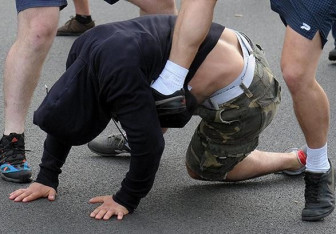Lawyer with 15 years of legal experience, specialization: family and civil law, inheritance, contract law, criminal cases, administrative cases, cases involving foreigners, migration law
Intentional grievous bodily harm is one of the most serious crimes against a person under the Criminal Code of Ukraine (CCU). Article 121 of the CCU defines intentional grievous bodily harm as an act that causes a long-term health disorder or significant disability. This article covers both the injuries themselves and the punishment for them, and is important in the context of legal protection of Ukrainian citizens. In this article, we will look at the legislative regulation of intentional grievous bodily harm, analysis of Article 121 of the CCU and its practical application.
Article 121 of the Criminal Code of Ukraine: content and structure
Part 1 of Article 121 of the CCU
Part 1 of Article 121 of the CCU defines intentional grievous bodily harm as such that caused
- danger to life at the time of infliction,
loss of any organ or its functions,
mental illness,
other long-term health disorder.
The offence is punishable by imprisonment for a term of five to eight years.
Article 121(2) of the CCU
Part 2 of this article provides for qualified types of intentional grievous bodily harm, i.e. those that caused the victim's death. Such actions are punishable by a more severe penalty - imprisonment for a term of seven to ten years.
Key concepts and legal aspects
Danger to life at the time of infliction
One of the key elements that determine the severity of a bodily injury is its life-threatening nature at the time of infliction. These can be wounds that cause significant blood loss, damage to internal organs or other injuries that require immediate medical intervention to save the victim's life.
Loss of an organ or its functions
This aspect covers cases where the victim loses the ability to use a particular organ or body part, such as loss of sight, hearing, arm or leg. Such injuries have long-term consequences for the victim's life and health.
Mental illness and long-term health disorder
Intentional actions that cause mental illness or long-term health disorder also fall under Article 121 of the CCU. These can be both physical and psychological injuries that require long-term treatment and rehabilitation.
Practice of application of Article 121 of the CCU
The application of Article 121 of the CCU requires a thorough analysis of each specific case, taking into account all the circumstances of the crime and the severity of the injuries. The court practice shows that in order to qualify a crime under Article 121, it is necessary to have reliable medical reports and expert assessments confirming the severity of the injuries.
If you are facing charges of intentional grievous bodily harm or have been a victim of such a crime, contact the lawyers at https://consultant.net.ua. A professional lawyer under Article 121 of the Criminal Code of Ukraine Intentional grievous bodily harm will provide you with qualified assistance in resolving all legal issues. An experienced lawyer under Article 121 of the CCU will ensure effective protection of your rights and interests in court. Regardless of the complexity of the case, a lawyer for intentional grievous bodily harm will help you collect the necessary evidence and prepare for the trial. Don't leave your rights unprotected - contact a lawyer under Article 121 of the CCU to get professional support and a fair decision.
Conclusion
Legislative regulation of intentional grievous bodily harm in Ukraine is an important component of the human rights protection system. Article 121 of the CCU provides for severe punishment for such crimes, and its application requires a thorough analysis of all the circumstances of the case. Qualified legal assistance from a lawyer is essential to ensure a fair trial and protect the rights of the accused and victims. Contacting experienced attorneys at https://consultant.net.ua will help you ensure that your rights are properly protected and that you achieve a fair resolution of your case.

































